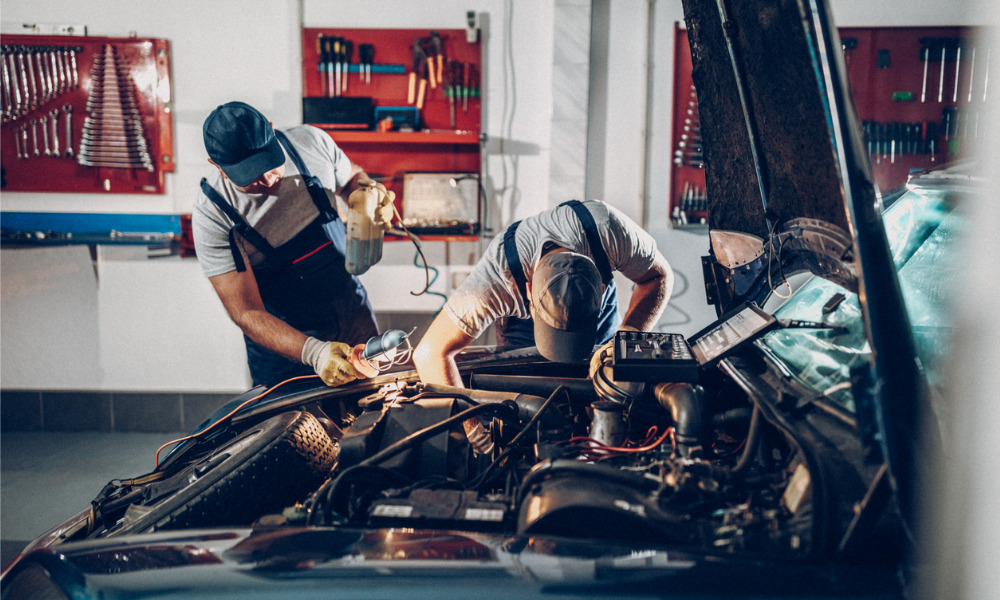
'No matter who you speak to, we're all feeling the same way'

Australia’s automotive industry has recorded the highest ever labour shortage as businesses across the country struggle to recruit skilled workers.
Last month, the Motor Trades of Australia association recorded a current shortage of 31,140 skilled positions in the sector. MTAA CEO Richard Dudley said some businesses have been forced to scale back capacity and sell off equipment because they simply cannot find enough qualified staff to do the work.
The struggle to recruit has been echoed across Australia’s business community generally. Recently released data from the Australian Bureau of Statistics found more than a quarter of Australian businesses are having difficulty finding suitable staff, with the top three reasons identified as a lack of applicants (74%), lack of required skills (66%) and closed international borders (32%).
Speaking to HRD, Adam Pay, Managing Director of mycar, said the vast reduction in overseas workers and a surge in demand for services like repairs after the initial lockdown has left the industry struggling.
“There's some pent up demand from where cars weren't being serviced or tires weren't being replaced during the lockdown and on top of that, some of the markets within auto such as the four wheel drive industry have gone bananas,” he said.
“There's now a bigger pull on the existing resource pool than there has ever been before. No matter who you speak to in the industry, they’re feeling the same way.”
Pre-pandemic, working visas like the TSS 457 were a vital tool to fill skilled staffing gaps, especially in hard-to-reach regions like Western Australia. But with the borders closed to temporary workers for the foreseeable futures, businesses have had to shift their focus to the capabilities of their current workforce and untapped talent pools.
Operating 270 stores, around 10 of which were opened during the pandemic, Pay said the jobs demand will remain high as the company continues to grow. The most in-demand role is that of a technician, those carrying out the repair work, and within that, there is a particular skill shortage for leading technicians who have management responsibilities.
“That for us is the most challenging role to fill right now but the more apprentices we get coming through mycar, the less we’ll be impacted by the shortage in the talent market,” Pay said.
Mycar currently has 335 apprentices in its nationwide program which Pay said is a significant talent pipeline. As the largest single employer of apprentice motor mechanics in Australia, mycar has established a robust training program to train a stream of well-rounded technicians. Mycar also operates a School Leaver program, where year 11 and 12 students can complete the first year of their apprenticeship while finishing high school, with 15 current participants.
Pay said as well as experiencing a high standard of technical education through a TAFE or similar location, apprentices are partnered up with a ‘father figure’ in stores to receive on the job training. But there’s also a focus on career pathways beyond the technician role which is something Pay believes is holding the industry back.
“I think the industry struggles attract people into it because it's seen as a very technical role. If you think about the way car technology is evolving, it's going to be less about spanners and more about laptop so in the future, so we’re going to need a very different talent market than we do today,” he said. “I think the challenge is how do you morph from where the industry is to this more technical, computer technology driven space?
“We really work hard to overcome the stigma that comes with being a mechanic. When we talk about mechanics at mycar, we refer to them as technicians because that’s what they are.
“Once they’ve done their apprenticeship and a couple of years on the job to become a well-rounded technician, they can move into a store manager or an operations manager role to step into real leadership. That way it’s actually about giving people a career over a job.”
This move towards nurturing young talent and capturing those who might otherwise go into other industries will be key for industries like the automotive sector. Facing closed borders and a pause on migration for another year at least, it’s an opportunity for Australia to redefine its reliance on migrant labour.
Read more: Flexible working: Is it given or is it earned?
Read more: Workplace COVID-19 vaccinations could begin in September